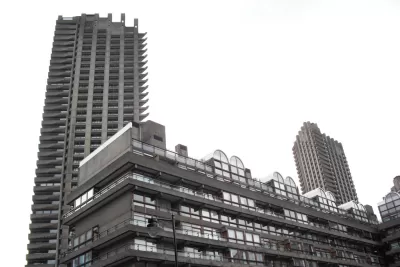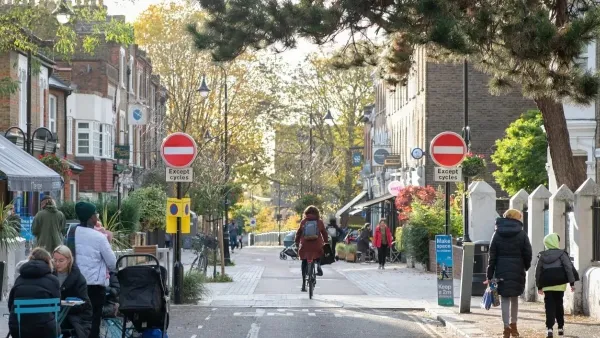A proposed extension of a 2013 law allowing commercial conversion to residential uses is threatening to "accelerate the hollowing out" of London.

The government of the United Kingdom has proposed extension of a law that has allowed the conversion of commercial and industrial properties into residential uses. While this may be seen as beneficial to alleviating ongoing demand for much needed housing in the city, the conversions are threatening to force out needed office space and small businesses while providing no affordable housing, all with little oversight of local governments and planners. Olly Wainwright reports in The Guardian on the potential outcomes of the law.
"The government says it is targeting vacant or underused office space,” says Michael Bach, chair of the planning committee of the London Forum of Amenity and Civic Societies. “But the planning system isn’t capable of targeting whether buildings are in use or not. Instead, this opens the door to obliterating occupied, fully functioning office space. For developers, if you don’t have to provide affordable housing or meet housing standards, it’s a no-brainer. Spaces for small businesses and voluntary groups will be wiped out. As a long-term measure, it is disastrous for London."
Proponents of the law, including the British Property Foundation, say it will revive formerly dormant commercial properties into a needed use. However, Wainwright points to existing examples of the conversion of active commercial spaces in Croydon and the London Borough of Barnet, "which saw the eviction of 100 local businesses" after the conversion of an office block into 112 flats.
The law has had an added effect of creating land speculation, which Wainwright reports has resulted in "site wanted" posters popping up around the city. As the value of land goes up, commercial uses are being priced out, taking their jobs with them.
FULL STORY: How the Tories' 'planning shakeup' will suffocate London

Maui's Vacation Rental Debate Turns Ugly
Verbal attacks, misinformation campaigns and fistfights plague a high-stakes debate to convert thousands of vacation rentals into long-term housing.

Planetizen Federal Action Tracker
A weekly monitor of how Trump’s orders and actions are impacting planners and planning in America.

In Urban Planning, AI Prompting Could be the New Design Thinking
Creativity has long been key to great urban design. What if we see AI as our new creative partner?

King County Supportive Housing Program Offers Hope for Unhoused Residents
The county is taking a ‘Housing First’ approach that prioritizes getting people into housing, then offering wraparound supportive services.

Researchers Use AI to Get Clearer Picture of US Housing
Analysts are using artificial intelligence to supercharge their research by allowing them to comb through data faster. Though these AI tools can be error prone, they save time and housing researchers are optimistic about the future.

Making Shared Micromobility More Inclusive
Cities and shared mobility system operators can do more to include people with disabilities in planning and operations, per a new report.
Urban Design for Planners 1: Software Tools
This six-course series explores essential urban design concepts using open source software and equips planners with the tools they need to participate fully in the urban design process.
Planning for Universal Design
Learn the tools for implementing Universal Design in planning regulations.
planning NEXT
Appalachian Highlands Housing Partners
Mpact (founded as Rail~Volution)
City of Camden Redevelopment Agency
City of Astoria
City of Portland
City of Laramie





























